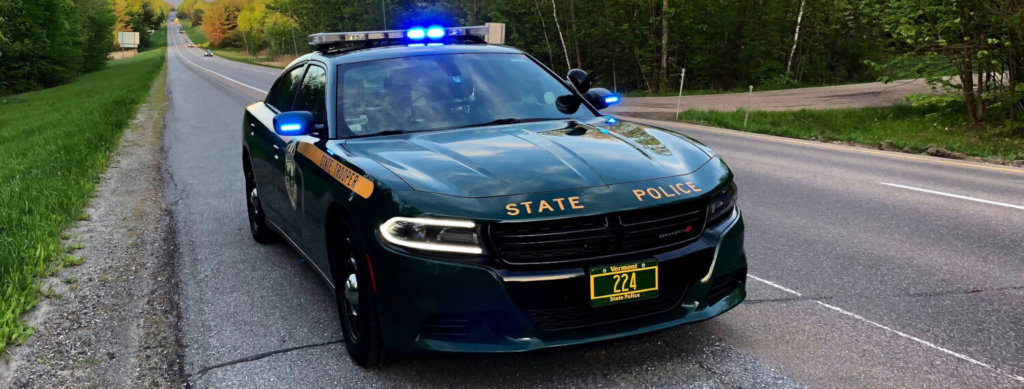Spring is here, and so are the speeding complaints

Police and Selectboard work to address concerns about fast cars
Buds sprout on trees, and Charlotters complain about speeding in town. The leaves fall, and Charlotters gripe about speeding on the back roads. Snowflakes drift gently to the ground, and Charlotters are concerned about speeding to the ferry. School lets out, and people complain about speeding on Spear Street.
As predictable and uncontrollable as the change of seasons, so are the worries of townspeople without a police department. A recent spate of requests for lower speed limits and an increased police presence begs the questions: What is there to be done, will it be effective, and how does this all work in the first place?
The town of Charlotte contracts with the state police for 32 hours a month of guaranteed patrolling, which breaks down to around eight hours a week, which varies somewhat depending on the season and staffing at the Vermont State Police barracks in Williston. This costs the town $30,000.
Vermont State Police Lieutenant Bob Lucas communicates regularly with the Selectboard about the police work in town, as does Charlotter and VSP Sergeant Matt Daley. Lucas said that he and Daley hear from residents regularly, often with a phone call or email, and sometimes even at the grocery store or around town. They both said they welcome input from the public. Lucas said input from citizens, as well as data analysis of the records they keep regarding police activity, helps them “adjust accordingly. It gives us that flexibility to go ahead and be creative about how to do enforcement,” he said. “In that sense, it’s a very responsive system.”
While the police do listen to citizen input—Lucas said they will even look up specific license plate information if it’s provided—they are limited in the service they can offer Charlotte. Selectboard Chair Matt Krasnow said, “When we first talked with the state police about having a contract, they were very clear that their policy is that towns are really not in a position to dictate how state police should do policing.” VSP trooper activity is limited, Daley said, not only by the season but also by how many people are currently on staff.
Daley said they make an effort to meet Charlotte’s needs as best they can. “We try to time it well,” he said, “But we can’t mandate when they do the hours.” He said he regularly puts out a call to troopers in New Haven and Williston, and if those officers want to pick up more hours, he will send them to Charlotte.
Daley and Lucas both indicated that they pay attention to input from residents as far as speeding is concerned, and Krasnow said he finds the police to be quite responsive to particular needs. Popular areas for citizen complaints include Ferry Road, Mt. Philo Road, Spear Street, the village and the double-lane corridor on Route 7 north of the Ferry Road intersection.
At the most recent Selectboard meeting, several Charlotte residents attended to make known their desire to lower the speed limit on Ferry Road from 50 to 35. Daley said that though safe speed is a priority, he doesn’t anticipate that happening. “I don’t think we’ll change it,” he said, noting that the process to lower the speed limit is a lot more complicated than just ordering and posting new signs. He said that, in order to lower a speed limit, traffic studies must be conducted and that the recommended speed limit is generally the rate at which 85 percent of the traffic on that road travels. Ferry Road in particular, he said, is straight and lacks hazards that would indicate a lower speed is necessary. In his opinion, he said, “People aren’t going as fast as you think they are,” adding that to a walker or jogger a car traveling 50 miles per hour might seem fast but is likely obeying the law.
Lucas said that the Williston barracks was short-staffed recently but is now back to regular staffing levels. This means, he said, that there will be more potential for officers to leave their priority patrols on the interstate and come out to surrounding areas, including Charlotte, and might even be able to double up on hours and strategically place troopers in more than one spot in town.
Daley provides data to the town regarding police activity; in March of this year, four speeding tickets were issued, three miscellaneous motor vehicle violations, two citations were issued for driving with a suspended license, and 12 written warnings were issued. Though the town collects a percentage of the fines paid, Krasnow said the money is a nonissue. “The town doesn’t have an interest in making money; we have an interest in safety,” he said.
Lucas and Daley will be at the May 13 Selectboard meeting to go over police activity data and answer any questions from the community.

